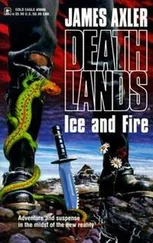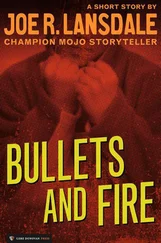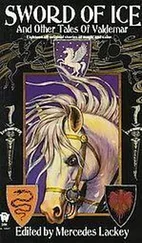Andrea Dworkin - Ice And Fire
Здесь есть возможность читать онлайн «Andrea Dworkin - Ice And Fire» весь текст электронной книги совершенно бесплатно (целиком полную версию без сокращений). В некоторых случаях можно слушать аудио, скачать через торрент в формате fb2 и присутствует краткое содержание. Жанр: Старинная литература, на английском языке. Описание произведения, (предисловие) а так же отзывы посетителей доступны на портале библиотеки ЛибКат.
- Название:Ice And Fire
- Автор:
- Жанр:
- Год:неизвестен
- ISBN:нет данных
- Рейтинг книги:5 / 5. Голосов: 1
-
Избранное:Добавить в избранное
- Отзывы:
-
Ваша оценка:
- 100
- 1
- 2
- 3
- 4
- 5
Ice And Fire: краткое содержание, описание и аннотация
Предлагаем к чтению аннотацию, описание, краткое содержание или предисловие (зависит от того, что написал сам автор книги «Ice And Fire»). Если вы не нашли необходимую информацию о книге — напишите в комментариях, мы постараемся отыскать её.
Ice And Fire — читать онлайн бесплатно полную книгу (весь текст) целиком
Ниже представлен текст книги, разбитый по страницам. Система сохранения места последней прочитанной страницы, позволяет с удобством читать онлайн бесплатно книгу «Ice And Fire», без необходимости каждый раз заново искать на чём Вы остановились. Поставьте закладку, и сможете в любой момент перейти на страницу, на которой закончили чтение.
Интервал:
Закладка:
I had a friend on that block, Joe, and we would say hello
and talk and say shy things to each other. Their houses were
19


different, all brick row houses, but right on the sidewalks, no
flights of steps going up to the door, just one level block. There
were more gardens. Kids didn’t stay outside playing that I could
see. Or maybe there weren’t any, I don’t know. Joe had grease
on his hair and it was combed very straight and sticky sort of,
and he wore checkered shirts, and he talked different but I
don’t know why or how: he didn’t seem to be used to talking.
He was a teenager. I would walk down the street and he would
sort of come out and I wouldn’t know what to say, except one
day I smiled and he said hello, and then after that I would
decide if I was going to walk down the Catholic block or not
and if I was chasing boys and what was wrong with him that I
wasn’t supposed to talk with him and I couldn’t talk with him
too long or someone would notice that I hadn’t come home
with my friends on my block. And I used to come home other
ways too, where I had no one to talk to. I would walk home
by the convent and try to hear things inside it, and sometimes I
would walk home on the black blocks, all alone. This was my
secret life.
*
There was an alley next to a church on the way to school and
we would always try to get lost in it. It was only a tiny alley,
very narrow but long, dark and dusty, with stray cats and
discarded bottles and strange trash and urine and so even
children knew its every creak and crevice very soon. But we
would close our eyes and spin each other around and do
everything we could not to know how to get out. We would
spend hours pretending to be lost. We would try to get into
the church but it was always closed. We would play adventures
in which someone was captured and lost in the alley and
someone else had to get her out. But mostly we would flail
around being lost, the worst thing being that we would know
exactly where we were and there were no adventures and we
couldn’t go in the church. Then sometimes suddenly we would
really be lost and we would try to find our way out and not be
able to no matter how hard we tried and it would start getting
dark and we would get scared and somehow when we got
scared enough we would remember how to get out of the alley
and how to get home.
*
20


We had to walk a long way to and from school, four times a
day: to school, home for lunch, back to school, home at the
end of school; or sometimes we had to go to the Hebrew School
after school, twice a week. In school all the children were
together, especially the Polish Catholics and the blacks and the
Jews, and after school we didn’t speak to each other or be
friends. I would try to go to the houses of kids I liked in
school, just walk by to see what it was like if it was near
where I walked to go home, and there would be polite conversations sometimes on their blocks, but their parents would look at me funny and I could never go in. We got to love each other
in school and play together at recess but then no more, we had
to go back to where we came from. We had to like each other
on our block whether we did or not and it was OK when we
were playing massive games ranging over the whole wide world
of our block, but sometimes when I just wanted to talk to
someone or see someone, one person, it wasn’t someone on
our block, but someone else, someone Polish Catholic or black,
and then I couldn’t: because it just couldn’t be done, it just
wasn’t allowed. My parents were good, they were outspoken
against prejudice and they taught me everybody was the same,
but when it came to actually going on another block they just
said not to go there and there and there like everybody else
and when I tried to go there the parents on the other end
would send me away. There was Michael who was Polish Catholic, a gentle boy, and Nat who was black. She would come to my house and once at least I went to hers, at least once or
twice I was allowed to go there, mostly she came home with
me, my parents protected me and didn’t let me know how the
neighbors felt about it, and we always had to stay inside and
play, and her mother was a teacher and so was my father:
and I loved her with all my passionate heart. When we
moved away to the suburbs so mother wouldn’t have to walk
any steps because she couldn’t breathe I was torn apart from
all this, my home, my street, the games, the great throng of
wild children who played hide-and-seek late into the night
while mother lay dying: and I said, I will go if I can see Nat,
if she can come to visit me and I can visit her, and I was so
distressed and full of grief, that they looked funny at each
other and lied and said yes of course you can see Nat.
21


But where we moved was all white and I couldn’t see Nat.
*
So when I was a teenager I went back to the old neighborhood
to show it to a teenage friend, the old elementary school where
I had been happy and the old streets where I had been happy,
we took two buses to get there and walked a long way and I
didn’t tell anyone I was going, but now it was all black and
getting even poorer than it had been and there were hundreds
of teenage girls in great clusters on the streets walking home
from high school and we were white and we were surrounded
and they got nasty and mean and wanted to know why we
were showing our white faces there and I looked up and there
was Nat, quiet as she had always been, the same scholarly
serious face and long braids, now teenage like me, and black,
and with a gang of girls, and she told them to leave me alone
and so they did and she walked away with them looking away
from me, looking grave and sad and even a little confused:
walking away from me, but I was the deserter. I watched her
walking away, and I still see the look on her face even with my
eyes open, a remorseless understanding of something I didn’t
know but she did and whatever it was I had found her but it
didn’t matter because of whatever it was. It was the saddest
moment of my life. Later, mother died. I didn’t laugh or weep
or understand. Why are they gone?
22


Интервал:
Закладка:
Похожие книги на «Ice And Fire»
Представляем Вашему вниманию похожие книги на «Ice And Fire» списком для выбора. Мы отобрали схожую по названию и смыслу литературу в надежде предоставить читателям больше вариантов отыскать новые, интересные, ещё непрочитанные произведения.
Обсуждение, отзывы о книге «Ice And Fire» и просто собственные мнения читателей. Оставьте ваши комментарии, напишите, что Вы думаете о произведении, его смысле или главных героях. Укажите что конкретно понравилось, а что нет, и почему Вы так считаете.












